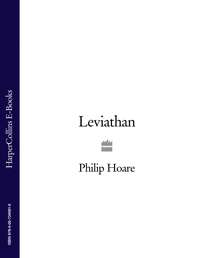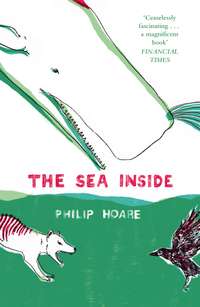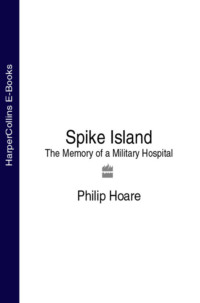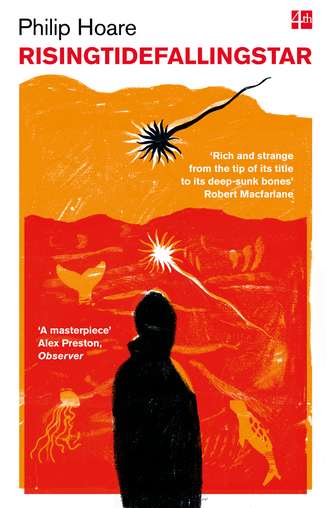
Полная версия
RISINGTIDEFALLINGSTAR
Stones and sea and sand. It’s the nothingness of what she does that drives Pat on. Her energy has become concentrated, as if everything was working to some Zen-like point of absolute and discard; the apparent nothingness of her paintings, the seeming emptiness of the beach; as if she has conjured it all up herself, and is content with what she has done. She needs to do no more. Pat rarely leaves Provincetown now; she is bound to this place. ‘I feel very cut off,’ she said in 1987, more than twenty years after Nanno died. ‘Come April, after a winter alone, I almost feel I don’t exist.’
Living behind her trees, looking out to sea, she might be a forgotten figure in this forgetting town, abandoned all over again. But when we get in a taxi, the young driver tells me, ‘Mrs de Groot rides for free.’
It lies there in the shadow of the wharf, as if it had sought shelter beneath the wooden struts. It has been dead for only twenty-four hours, but its distinctive markings – delicate grey and yellow swirls, merging as a graphic equaliser of its motion through the waves, as if they’d left their traces on its body – are already fading in the wind.
A common dolphin, exquisitely ill-named. Dennis writes the binomial down on his form, losing patience as his pen runs out: Delphinus delphis, a much more princely title, redolent of Cretan friezes and Greek vases. Two thousand years ago in his History of Animals, Aristotle attested to ‘the mildness and gentleness of dolphins and the passion of their love for boys’, and added, ‘It is not known for what reason they run themselves aground on dry land; at all events it is said that they do so at times, and for no obvious reason.’
This is no wild strand on the Cape’s ocean shore. It’s the town beach on the bay, overlooked by the rear porches of shops and restaurants; this stranded cetacean might well have been a late-night throwaway, along with the lobster and clam shells. Yet these tame waters can be dangerous places, too. One morning, out on my deck, I’d seen fins in the distance, between the breakwater and the pier. Through my binoculars I watched a small pod of common dolphins moving restlessly up and down. I cycled down to see them from close quarters. Too close, I realised; they were in danger of grounding. I stood barely ankle-deep, and they were only twenty feet from me, where the blue became sandy brown. It seemed impossible that they could even be swimming there. The potential for disaster turned it into a quiet crisis, a clip from a natural history documentary with the voiceover removed, a scene ignored by the townsfolk going about their business.
For a dolphin to beach itself is a drastic act. Recent studies suggest that the animals ‘will strand themselves when they are very weak because they don’t want to drown’, says Andrew Brownlow, a Scottish scientist. There seems to be ‘something very deep in the terrestrial mammalian core that fires up when they are in extremis’. It is both suicidal and a desperate last attempt at survival. At least, that is how we see it. We sanctify these creatures as salves for our own depredations, and seem always to have done so. Around AD 180, the Greco-Roman poet Oppian declared that hunting ‘the kingly dolphin’ was immoral, on the grounds that they were once humans who had exchanged the land for the sea. ‘But even now the righteous spirit of men in them preserves human thought and human deeds.’
Dennis called me with the news. Minutes later, we were driving down to the harbour. The day before, on the whalewatch boat, we’d watched the pod of dolphins moving through the clear waters in search of food. Among them was this individual. Such small groups of dolphins have close matrilineal relationships and are intensely loyal. Did it die in the night, on the dark and lonely beach, calling for its family as they called back? This beautiful, naked animal, now lying at my bended knees, was as smooth and patterned as a piece of porcelain. There was nothing morbid about it; it still seemed full of life.
I run my hands over its body. The fins are finely shaped, rubbery and tactile, caressed and caressing when alive; the taut flanks taper to the muscular tail. The eyes are disconcertingly open, unseeing, untouched by the gulls, which often fall to feed on stranded cetaceans even before they’ve expired. Clearly displayed on its underbelly is the animal’s genital slit, flanked by two smaller mammary slits, betraying, in this indecent exposure, its sex. I insert my finger, ostensibly to investigate if she, as she had now become, had bred, but in reality out of prurient curiosity.
I say a Hail Mary for my sins.
After we have recorded her dimensions as if measuring her for a new outfit, I stretch out beside her for comparison; not for scientific reasons, but my own: head to tail, toe to beak, sensing how similar we are. I imagine her as a human in a dolphin wetsuit. I think of her bones, lighter than mine since they did not have to bear the full weight of gravity; I might replace my burdensome skeleton with hers, transformed from the inside out. I think about how much of my life is spent vertical or horizontal, upright on land or level with the water – a sensation known as proprioception: the apprehension of one’s body in space; the way we want to be comfortable in the world, yet are never really reconciled to the business of being physical.
I lie there like a lover, her body a mirror for my own. Her blowhole would never again burst open in exultation, in the joy of being a dolphin. She wouldn’t wriggle free of the sand, working her vigorous tail to swim away. The patina of decay had spread along her flanks like the silvery bloom on a plum. Dennis’s knife cuts into the dorsal fin as the instructions on his form dictate, slicing off its tip in a liquorice-allsort sandwich of black skin and white fat. I feel an odd compulsion to bite down on the excised morsel. The teeth come next, each ivory needle arranged regularly along the narrow jaws. Research suggests that they may act as a sonic tool, helping to transmit sound back to a dolphin’s inner ears.
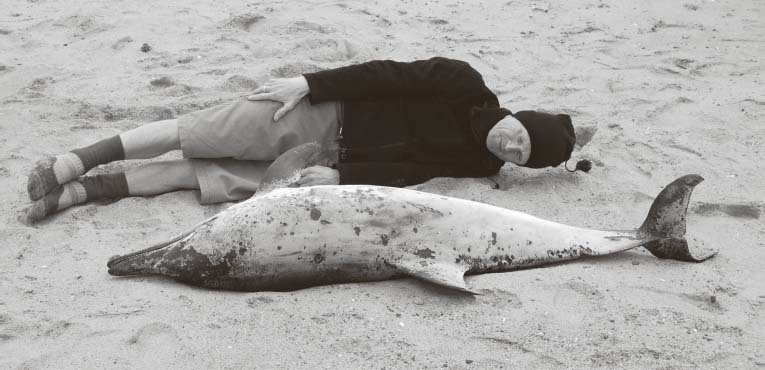
Compared to this complex animal, I am sensorially inept, a dumb being barely able to feel anything. She could hear-see in the depths, heat-seeking sand eels and surfing with humpbacks; she could bond with her pod, using her signature whistle and those of her friends to call them. She could echo-locate her peers, sensing their emotional states, knowing how they felt, almost telepathically. She had a culture and expressed her self in a state of collective individualism and, as we now know, exhibited an emotional maturity possibly in excess of our own. But her life of apparent ease has been brought to an end on this urban shore. Passersby ask, ‘What kind of fish is that?’ Waiters sit on restaurant steps smoking cigarettes before the start of their next shift. In another age, their counterparts might have served it to their customers. In the nineteen-sixties, the town’s Sea View diner had humpback on the menu.
Dennis saws at the jaw, hacking out the four teeth required for analysis by the organisation for whom he is acting. The serrated blade grates against bone, the worst hour in the dentist’s chair you could imagine. The gums part and, two by two, the teeth are extracted. Blood trickles into the sand. The outrage is complete. Our samples bagged and the animal’s flanks duly marked with the organisation’s acronym, we drive off, leaving her alone on the beach, ready to roll in the next tide, as though its comforting waves might wash her back to life.
Dead or alive, we all strike the same pose; the same way my mother sat in a sepia photograph of her as a young woman in the garden of her suburban family home, resting her weight on one hand on the chair as she half turns to the camera like the movie stars she’d seen; the same way she’d sit in the last photograph I took sixty years later of her in our garden barely a mile away, adopting the same position; the same pose that, I realise, I too take up as I sit and turn to a camera which is not there.
Out in the bay, the moored boats act as weather vanes, swivelling and turning with the direction of the wind. I look out from my deck to the horizon. It’s my barometer. If it’s straight, there’ll be whalewatching today; if it’s wavy and irregular, perhaps not. Today it is level. So we go to sea.
There’s nothing so exciting as that rising feeling as the boat readies to leave the harbour, potent with the prospect of the day ahead. Even as it stands tethered to the wharf, Dolphin VIII is a vessel invested with its own momentum, as though it would leave whether or not anybody was on board; a great grinding mass of steel plates and engines whirring deep down below, a powerful industrial connection with the resisting churning water. As I board with its crew – the fisherman turned captain, the taciturn first mate, the poet naturalist, the East European galley staff with professional futures back home – I feel a perennial outsider, for all that I’ve been sailing on these same boats, watching the same whales, for fifteen years. No one is ever sure of their place here, no one quite secure: the crew only work if the weather is good and the punters are paying their wages. Weather, work, people, whales: it is all an uneasy alliance, a nervous contract drawn up on an inconstant sea, agreed by a common pursuit. At least, for those few hours.
After a long bitter winter, the Cape has come to life. As I peer down into the green water, the reason is clear: fields of silvery sand eels, roused in their millions from the sea floor by the sun and now pooling in wriggling tangles, turning this way and that as one mass, just below the surface. These slender fish supply an entire food chain; their arrival could equally herald the crowds that will soon teem through the town’s streets.
Only half an hour out from the land, a frenzy is in progress. Northern gannets are plunging into the bait like white-and-yellow torpedoes. A raft of loons, with stiletto-sharp bills and freckled oil-green wings, are working the same source. Harbour porpoises roll through the waves; grey seals bob like bottles.
Suddenly, something much larger appears in the one-hundred-and-fifty-foot-deep water that runs right up to Race Point: the falcate dorsal of a fin whale. For all its size, its black back too big to belong to a mere animal, it too is feeding on fish barely bigger than my finger. A pair of minkes, more modest rorquals, bearing the same strangely pleated bellies, join in. Then, as the boat pushes out over Stellwagen Bank’s great drowned plateau under the wide Atlantic sky, the ocean begins to erupt anew with the blows of dozens of humpbacks, back from their winter stay in the Caribbean.
Then we are upon them, along with a thousand white-sided dolphin, weaving in and out as the great whales trap the sand eels in their bubble nets, rising through the corralled fish with mouths open wide, throats like rubbery concertinas, pleats clattering with barnacles like castanets. Gulls perch on the whales’ snouts to pick out titbits. And just when it seems the scene can sustain no more predators, a dozen more fin whales arrive, lunging on their sides, displaying the bristly baleen in their jaws.
In this moment of witness, nothing else matters. Passengers delete images to make room for new ones on their cameras. My friend Jessica sees a couple frantically pressing the trash button as one says, ‘Dump the wedding ones.’
Up on the bright white fly bridge, we watch the performance. A pair of adult fin whales aim straight for us. Each of them sixty feet long, at least.
Hands tight to the wheel, our captain, Todd Motta, shouts, ‘Whoa!’ as the nearest whale sheers off our bow, surfing on its side to display its great white belly like some enormous salmon.
‘I thought it was going to hit us,’ says Todd.
As experienced as he is, he’s momentarily shaken. The second largest animal on earth, normally betraying barely a tenth of its mass as it moves through the sea, has flashed its entire physical self at us, using our boat as a fish stop. We are an instrument as much as an engine of observation.
All around us, the humpbacks continue to feed. One of the whales called Springboard rolls over to swim for a while on her back, displaying her genital mound, a region so gathered about with barnacles that it must make life uncomfortable for her suitors.
‘I’ve never seen that before,’ says Dennis.
Or maybe he has; it’s so difficult to tell. Are these the same whales we just saw? The boat rocks and I stagger as I hold on to the clipboard and the rubber-encased GPS, regaining my footing to read off the coordinates for the pink photocopied sheets.
70 degrees north 18 degrees west. Mn: 1/2.
A calf holds its tail out of the waves, its body perpendicular in the water column. It trembles with its own life, the way a young boy’s body trembles in adolescence, quivering with hormones. Then it starts to smash up and down on the water.
‘Are these new animals?’ Dennis asks.
I’ve no idea. The boat has turned round on itself, leaving a green swirling trail in its wake. The animals rise again, mouths as open as birds’ beaks. The passengers look over the railings, ecstatically, loudly excited or overcome with lassitude and boredom, in the way of all ordinary miracles. None of this is of any consequence, because it happens day after day. Only in the actual moment am I transported. Only then does it leave me, this sense that I am not really here at all. We shiver with life, and its alternative. Waiting to come out the other side.
A few days later, we sail out of the harbour on another sunny morning. In the wheelhouse, I lean over the broad counter covered in what looks like wood-effect Formica from a seventies kitchen, peering at the chrome-ringed dials, updated with computer displays of the underwater terrain and a green radar screen silently scanning a black sea. We have left the land and its safety. An adhesive label announces the instructions for Marine Distress Communications to be relayed on the Submersible Plus VHF radio. Stuffed behind the sticky cup-holders is the Weekly Payroll Sheet.
Everyone on the bridge is in a good mood, looking forward to the day. But as the depth gauge draws 206 feet, the outlook changes as abruptly as the ocean floor falls away beneath us. The land to our starboard – such as it is – has been submerged under a sea fret. It’s as if the view had reached the edge of an old projected film, fading into fuzzy nothingness.
The boat sails straight into the mist and everything around us disappears. The land and sky vanish into one vast cloud; all we are left with are the few yards of water immediately around the boat. We’re entirely isolated, wrapped up in damp cotton wool. One minute, holiday sun; the next, murky obscurity.
‘How do you look for whales in conditions like this?’ I ask Lumby – Mark Dalomba, our captain for the day.
His camouflage cap is pulled down over his eyes; he doesn’t turn round as he talks to me.
‘Cut off the engines and listen,’ he says. ‘For the sound of their blows.’
But today Lumby has assistance. Chad Avellar, another young fisherman of Azorean descent who could sail these waters in the dark, is ahead of us, and radios back what he is seeing. Lumby charts a course ahead; or rather, he follows his own instincts. He plays the sea like a pinball machine. Perched on his captain’s seat, eyes always ahead, he stabs at the radar screen.
‘See those blips?’ he says, pointing at the luminous green blobs shaping and reshaping, coming together in one mottled mass, discrete from the sea clutter that the fish-finder produces when reflected by the waves. ‘Those are the whales.’
Conditions deteriorate. The boat rolls with its weight and ours, lurching from side to side.
‘Crappy weather on the way,’ says Lumby.
We seem to be moving ever slower, dragged back by the banks of fog. My heart sinks. It’s my last trip of the season. Even if we come upon whales, will we actually see them? Everything is grey. There’s no horizon, no context. We might as well have drifted into the Arctic, or the Bermuda Triangle, for that matter.
The silence explodes with blows. Of course it does. We are surrounded by whales, as if they’d been there all along, only now choosing to break cover. The water bursts with their exhalations. We can’t tell sea from sky, but these animals are producing their own weather, their spouts merging with the mist.
They are feeding, voraciously. Bellowing, blowing, rising up through their own bubble-clouds, eight whales at a time piercing the surface, cooperating in an orgy of consumption. It is a visceral, indisputable, audible furore. Whales are not tentative. They do not fuss and bother. They do not falter. They act, uproariously, greedily, and utterly in-their-moment.
Lumby climbs up to the fly bridge. As he does so a dozen whales loom up right off the bow, their cavernous mouths open like gigantic frogs, fringed with baleen and roofed with pink strips like engorged tongues. It’s a fearsome sight. We follow Lumby aloft, clambering up after our captain as if trying to get away from the beasts.
From our eyrie, we look down through the mist. Everywhere there are whales, lunging and fluking and kick-feeding, taking advantage of the fog to cover their gluttony. Fifteen humpbacks, maybe more.
Then, as if roused by their mothers’ furious feeding, the calves begin to leap. One after another, spindle-shaped bodies shoot out of the sea like popguns going off. We don’t know where to look. Lumby holds the boat in position; he seems to be conducting the whole scene, even though he has lost control, like the rest of us.
‘Jesus Christ,’ I exclaim, then apologise, hoping the passengers haven’t heard me.
‘No,’ says Liz, the poet naturalist. ‘That’s quite appropriate.’
The calves have begun to breach simultaneously: two, three, four, five, all together.
‘They’re more like dolphins than whales,’ I shout.
No marine park could rival this show. They might as well be Eocene cetaceans leaping out of an ancient ocean, celebrating their leaving of the worrisome land. Two centuries ago, as a young man on his maiden voyage, Melville saw his first whales not far from this shore; his ship, too, was drifting in the mist.
‘The most strange and unheard-of noises came out of the fog at times: a vast sound of sighing and sobbing. What could it be? This would be followed by a spout, and a gush, and a cascading commotion, as if some fountain had suddenly jetted out of the ocean … But presently some one cried out – “There she blows! whales! whales close alongside!”’ To the young sailor, they sounded like a herd of ocean-elephants.
As the sea bursts with the blows and foraging of the adults, it is blown open by their breaching calves, creating abbreviated geyser-spouts of their own. Up on the bridge, we’ve run out of superlatives. John, our hardbitten first mate, is speechless. Later, in the afterglow of what we’ve witnessed, in a kind of apologetic embarrassment of emotion, he volunteers that, out of seven thousand trips, this is one to remember – ‘And it takes a lot to impress me.’ Liz and I assure our passengers – should they assume that this sort of thing happens every day – that it is one of the most extraordinary sights we have seen, out here on the Bank.
Then I look at Lumby. Under the peak of his cap, tugging at the cigarette jammed in his fist, he too is smiling to himself, as if he had summoned it all up. As if the scene, all the more amazing for the inauspiciousness of its prelude, were a vindication of his magical skills, far beyond those of naturalists or scientists or writers. Like his fellow captains, Lumby has never taken a photograph of a whale.
He doesn’t need to. They’re all there, in his head.

THESTARLIKESORROWSOFIMMORTALEYES
I return to the Cape on the eve of the new year. The summer is long gone. The sun looks as strong as ever, but it is made milky by the cold, its span over the horizon shortened. The days open late, become public, flicker, then close early, reclaiming their privacy.
As Dennis and Dory and I walk the beach at Herring Cove, the Arctic wind hits us full on. It bites at my face, tearing off the sun’s facile heat. I pull my scarf over my nose and stumble through the sand. Dennis kneels to the ground; we observe the rituals of the dead. A herring gull lies eviscerated, its guts pecked out by a glaucous gull which we saw at a distance, crouching over its cousin, ready and welcome protein. Dennis records the carcase on an index card. The blood, on pure white feathers, is strangely orange. The hole in its belly is big enough for me to wear the dead bird as a hat, should I so wish.
I throw Dory’s ball. She is naked, save for her collar. I worry that she might be shivering too. Her brow furrows and she cocks her head to one side as she asks me to throw the ball again. When we are with dogs, physicality is uncomplicated. They walk beside us as our outliers. Part of the human party, they are also our bridge with the natural world. They are our other. They are not cleverer than us, so we love them.
Like all animals, Dory has extraordinary eyes. Hers are fringed with pale lashes. No human could look so exquisite, or so feral, so unadorned. I can see why people once worshipped dogs. As we drive to the beach Dory perches on the armrest between Dennis and me, peering intently ahead, seeing and hearing things we do not see or hear. We only know because her ears rise or her eyes twitch. She knows where we are going. Perpetually expectant, as if every experience were a surprise, her body quivers with the excitement of just being alive. It is Funktionslust; an animal’s pleasure in doing what it does well, in being itself.
Dory is an import, like everyone else here, rescued from the backstreets of Miami. Now she scents foxes and chases balls, sometimes letting them roll into the surf, then staring at them as if daring me to go in after them. Her breeding, such as it is, may be Caribbean – a wild dog, the sort you see roaming Haitian beaches in packs and howling in the heat of the night – but her compact body seems suited to this winter landscape. Her neat flat coat is the colour of the dunes and the parched grass, although now she is growing fine silver hairs through her desert pelt. She never stops being, never stops running for her ball; I think her heart would burst before she let up the chase. Her life runs ahead of ours, speeding up as she races alongside us in another time zone. I’d like to talk to her in her voice, but like Wittgenstein and his lion, I wouldn’t understand what I might hear. Debbie, Dennis’s wife, says that sometimes Dory comes back from the woods shaking as if in fear, as if she’d seen something out there.
‘I am secretly afraid of animals,’ Edith Wharton, an erstwhile New Englander for all that she spent almost all her life in Paris, wrote in 1924, ‘– of all animals except dogs, and even of some dogs. I think it is because of the Usness in their eyes, with the underlying not-usness which belies it, and is so tragic a reminder of the lost age when we human beings branched off and left them; left them to eternal inarticulateness and slavery. Why? their eyes seem to ask us.’
The wonder is that all animals are not afraid of us. J.A. Baker, who spent the nineteen-sixties observing the wildlife of Essex, wrote of finding a heron on the winter marshes, trapped by its wings frozen to the ground. Baker dispatched the bird, humanely, watching the light leave its frightened gaze and ‘the agonised sunlight of its eyes slowly heal with cloud’.
‘No pain, no death, is more terrible to a wild creature than its fear of man,’ Baker concludes, in a deeply affecting passage, cited by Robert Macfarlane: ‘A poisoned crow, gaping and helplessly floundering in the grass, bright yellow foam bubbling from its throat, will dash itself up again and again on the descending wall of air, if you try and catch it. A rabbit, inflated and foul with myxomatosis … will feel the vibration of your footstep and will look for you with bulging, sightless eyes. We are the killers. We stink of death.’ Nature writing becomes war reporting. I remember the countryside of my childhood infected with that disease. In his ‘Myxomatosis’, written in 1955, Philip Larkin sees a rabbit ‘caught in the centre of a soundless field’, and uses his stick in an act of mercy. ‘You may have thought things would come right again | If you could only keep quite still and wait.’ My sister remembers our father having to do the same thing: the same terrifying eyes, the same dispatch.




